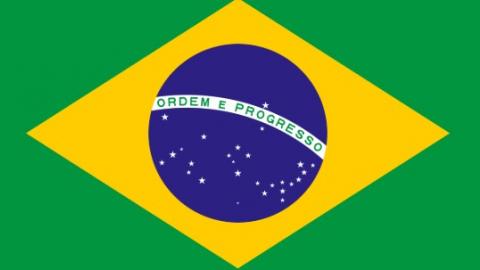
Yesterday, President Trump slapped—or at least threatened to slap—50% tariffs on all imports from Brazil. The reason given to justify said levies against Brazilian goods was the nation's prosecution of the current regime's primary challenger, Jair Bolsonaro. Bolsonaro has been undoubtedly friendlier with the Trump administration than current Brazilian president, Luiz Inacio Lula da Silva, but I contend there is much more to Trump's (potential) actions against Brazil.
Lula has been very outspoken about the need for BRICS to move away from the almighty US dollar. He could be, at this point, the greatest threat to the US dollar hegemony. And that is the real reason the nation is in Trump's crosshairs.
Unlike other countries that have a large trade imbalance with the US, Brazil is uniquely positioned to stand up to President Trump. Nations like China and Japan largely export finished goods to the US, while nations like Brazil, India, and, until recently, Russia largely export commodities to the US. Just in the past few years, we've seen how Russia's economy has thrived despite sanctions from the Western Hemisphere. Russia exports a lot of grain, oil, uranium, and other hard assets. They don't export computers, cars, furniture, or any other finished goods to the US. In fact, ever since Tito's Vodka came onto the scene, I'm not even sure how much vodka Russia exports to the US.
The problem with sanctioning countries with commodity-based economies is that markets for commodities are (a) efficient and (b) fluid. Once the US and the rest of the Western world sanctioned Russia, they simply found alternative buyers for their commodities. China decreased its energy imports from other countries and increased purchases from Russia, taking advantage of discounted Russian oil prices caused by Western sanctions. Africa began importing grain and other agricultural products from Russia, which they might have otherwise sourced from different countries. The only difference was the direction the ships went after leaving the Black Sea.
While Brazil may export more finished goods than Russia, the majority of goods the US buys from Brazil are raw commodities. And, Russia has provided a solid blueprint for avoiding the negative ramifications of US hostility for a commodity-based economy. If Trump follows through with his threat and imposes heavy sanctions on Brazilian products, Brazil can quickly find alternative markets for its beef, oranges, oil, sugar, and soybeans. Meanwhile, the U.S. will be left scrambling to source those same goods from elsewhere.
